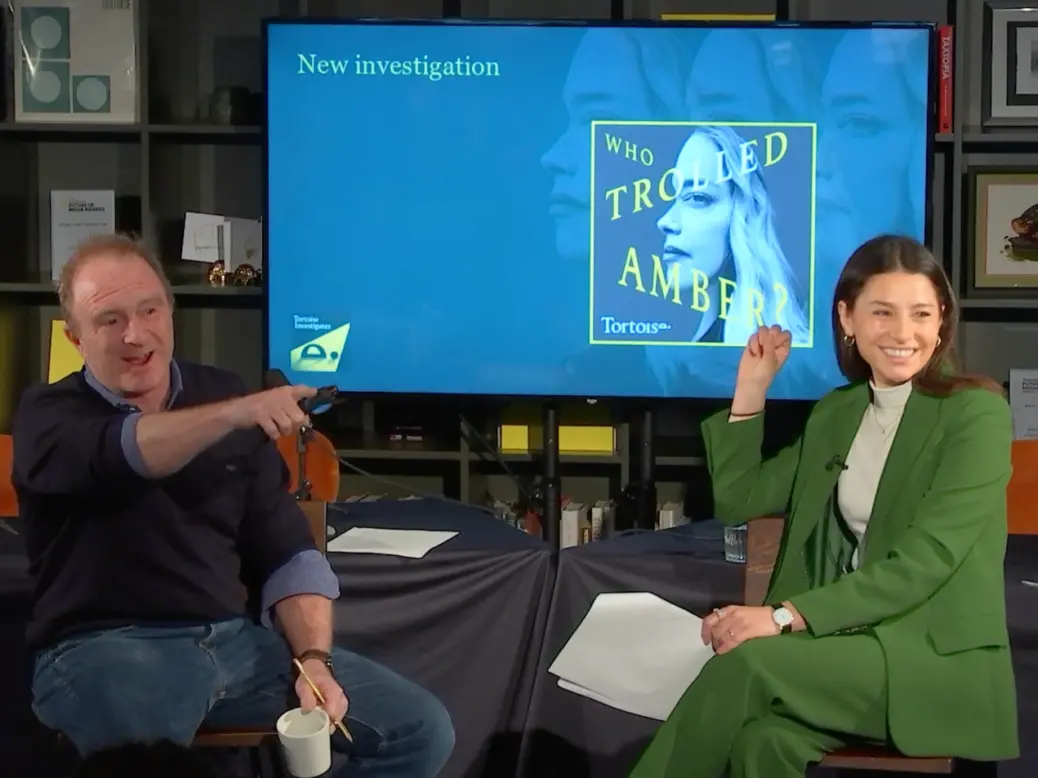
Tortoise Media has boasted of a growing younger and mostly female audience in a pitch to commercial partners at its London offices.
Alice Sandelson, commercial strategy director at the audio-first, ‘slow news’ publication, told prospective partners that Tortoise’s audience is now 60% women and 80% under 44.
“Unlike so much of what is out there, we’re not doing true crime,” Sandelson said of Tortoise’s podcasts. “These stories really try and focus on something that has relevance today.”
First launched as a long-form written journalism outlet, Tortoise has since found more commercial success through its audio offering – although its most recent Companies House filings revealed it still lost £4.6m in the 2022 financial year, which it partially attributed to investment in its audio facilities. The organisation raised £10m in funding for this purpose in early 2022.
[Read more: Tortoise Media reports growing losses of £4.6m in first full accounts]
Tortoise commercial update 2024
Sandelson told an annual launch event for the publisher’s audio output that its podcasts had been downloaded 60 million times over the previous two years.
She said Tortoise was seeing “about 1.5 to three million” downloads a month, depending on whether it had any limited series airing. Early Tortoise viral hit Sweet Bobby, which investigated “one of the world’s most sophisticated catfishers”, was released in late 2021 and pulled in 11 million downloads in the following 15 months.
A Tortoise Investigates podcast feed, which collects together the newsroom’s limited series, has “nearly 50% US listenership”.
Sandelson said Tortoise’s daily newsletter now has 100,000 subscribers and “a 43% open rate, which we’re very proud of”. (NB: Apple’s email clients give inaccurate information about open rates, which are generally thought to inflate all newsletter open rate figures.)
These eyeballs, Sandelson pointed out, can be marketed to: Tortoise recently did a branded episode of its daily Sensemaker podcast with Barclays and poverty charity the Trussell Trust, and published an investigation into social housing which was supported by Lloyds Banking Group.
She said the publisher has ambitions to see more of its work adapted for TV or cinema: “We have around half a dozen of our stories now in development for docs and drama, and a number of other conversations in play. We work with the brilliant team at [talent agency] CAA. We are really ambitious for this side of our business, and to get more Tortoise stories on screen.”
[Read more: Into The Guardian cinematic universe – Publisher movie deals explained]
The tearful origins of Tortoise’s podcast efforts
Tortoise editor James Harding told the audience that when the outlet first launched in 2018, “we thought that taking time on the story meant writing a lot of words. And we produced long-form text, and the pieces were brilliant. And very few people read them.”
The pivot to audio began, Harding said, in Tortoise’s old offices in “a little cupboard that we called the crying room.
“When it all got too much you could go and sit there, and it was okay, because if I was sitting down, I had my back to the office and no one could see.
“And then we put some sponge in that office, and that was the studio.”
Email pged@pressgazette.co.uk to point out mistakes, provide story tips or send in a letter for publication on our "Letters Page" blog
